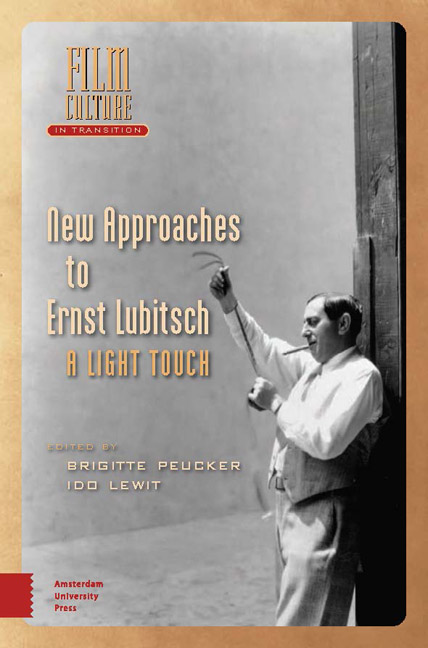4 - To Be or Not to Be: Revising History in Light of Migrant Interactions
Published online by Cambridge University Press: 16 April 2024
Summary
Abstract
This essay focuses on the role of migration networks in the making of Lubitsch's anti-fascist black comedy, To Be or Not to Be (1942). Taking another German emigre filmmaker—the director William Dieterle—as a counterpoint, it examines the cultural and social interactions by means of which references to European history lend a formal structure to political expression. Articulating the film's political impact through the influence of emigre social circles allows us to understand how emigration shaped the aesthetics of this film and how the framework of experiences of migration and the resulting social connections fashion To Be or Not to Be in formal terms.
Keywords: Hollywood; artistic migrations; emigre networks; historical representations; politicization
To Be or Not to Be (Lubitsch, 1942) is Ernst Lubitsch's most discussed and controversial film, and likely one of the most debated works of Classical Hollywood Cinema. The amount of attention the film garnered from its contemporaries largely derives from its genuinely anti-fascist nature. This “black comedy” features a Polish theatrical troupe as it rehearses the play Gestapo, before they are forced to cancel the show and flee to London as Hitler overruns Warsaw. The film portrays the rise of Nazism with both satirical distance and a reflexive attitude, combining theatrical settings with interactions emulating the Nazis to show how the power of fascism rests upon an act of performance. Although Lubitsch includes in his political satire a comedy involving a marital love triangle, To Be or Not to Be displays some unique features: its independent production, the presence of Melchior Lengyel in a story specifically written for this film and not adapted from a theater play. Finally, if Ninotchka (Lubitsch, 1939) already thematizes contemporary events, To Be or Not to Be overtly voices a clear political message that sets the film apart from the far more numerous, sophisticated high-society comedies. The reader of this essay is therefore justified in asking: what brought Lubitsch to and enabled him at this time in his career to take such a direct and critical position?
- Type
- Chapter
- Information
- New Approaches to Ernst LubitschA Light Touch, pp. 83 - 98Publisher: Amsterdam University PressPrint publication year: 2024



